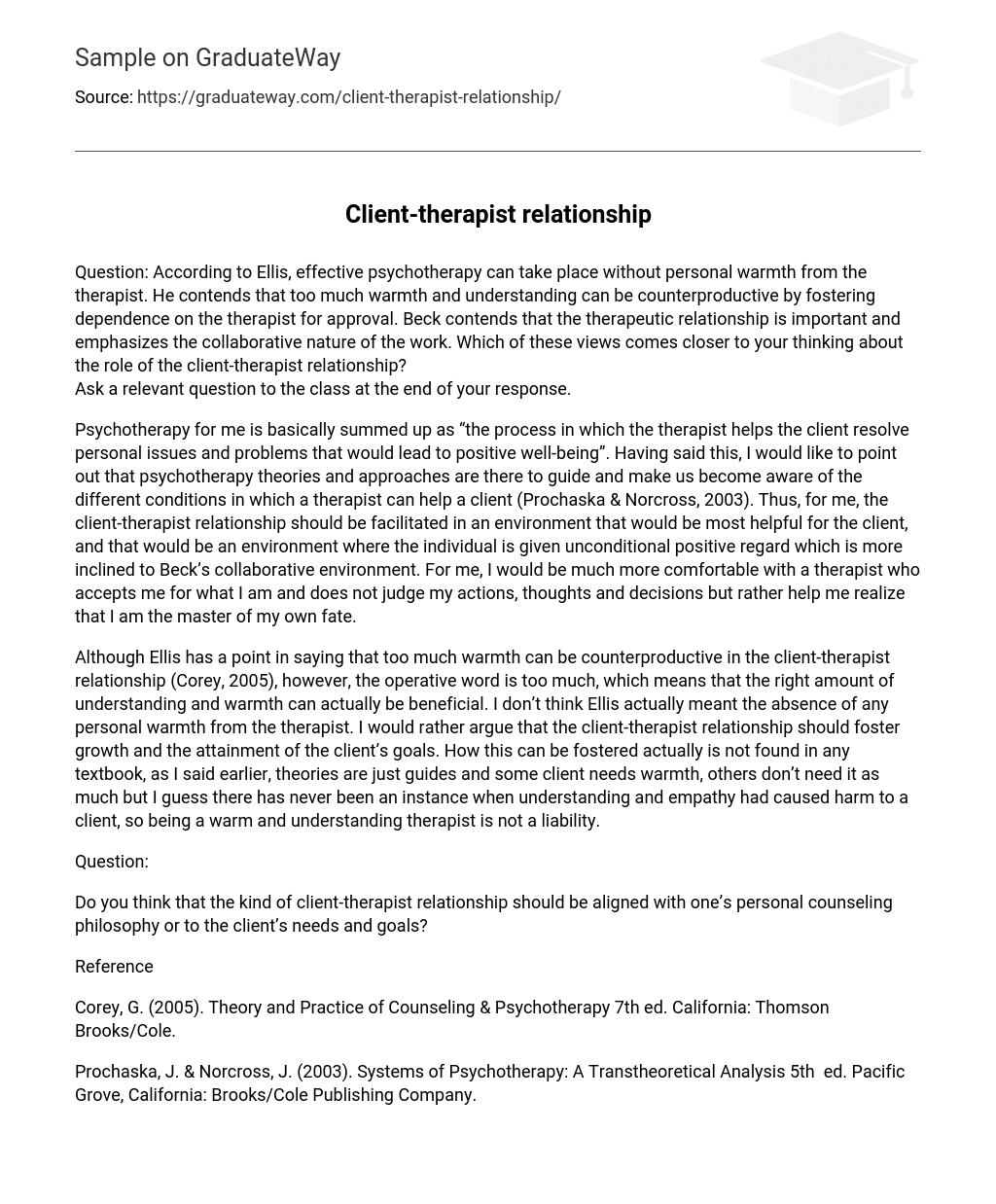Question: According to Ellis, effective psychotherapy can take place without personal warmth from the therapist. He contends that too much warmth and understanding can be counterproductive by fostering dependence on the therapist for approval. Beck contends that the therapeutic relationship is important and emphasizes the collaborative nature of the work. Which of these views comes closer to your thinking about the role of the client-therapist relationship?
Ask a relevant question to the class at the end of your response.
Psychotherapy for me is basically summed up as “the process in which the therapist helps the client resolve personal issues and problems that would lead to positive well-being”. Having said this, I would like to point out that psychotherapy theories and approaches are there to guide and make us become aware of the different conditions in which a therapist can help a client (Prochaska & Norcross, 2003). Thus, for me, the client-therapist relationship should be facilitated in an environment that would be most helpful for the client, and that would be an environment where the individual is given unconditional positive regard which is more inclined to Beck’s collaborative environment. For me, I would be much more comfortable with a therapist who accepts me for what I am and does not judge my actions, thoughts and decisions but rather help me realize that I am the master of my own fate.
Although Ellis has a point in saying that too much warmth can be counterproductive in the client-therapist relationship (Corey, 2005), however, the operative word is too much, which means that the right amount of understanding and warmth can actually be beneficial. I don’t think Ellis actually meant the absence of any personal warmth from the therapist. I would rather argue that the client-therapist relationship should foster growth and the attainment of the client’s goals. How this can be fostered actually is not found in any textbook, as I said earlier, theories are just guides and some client needs warmth, others don’t need it as much but I guess there has never been an instance when understanding and empathy had caused harm to a client, so being a warm and understanding therapist is not a liability.
Question:
Do you think that the kind of client-therapist relationship should be aligned with one’s personal counseling philosophy or to the client’s needs and goals?
Reference
Corey, G. (2005). Theory and Practice of Counseling & Psychotherapy 7th ed. California: Thomson Brooks/Cole.
Prochaska, J. & Norcross, J. (2003). Systems of Psychotherapy: A Transtheoretical Analysis 5th ed. Pacific Grove, California: Brooks/Cole Publishing Company.





